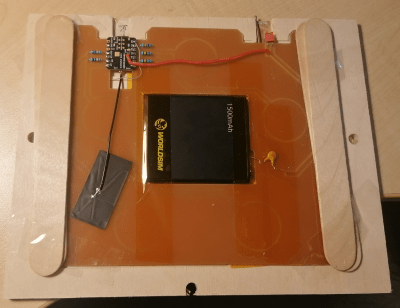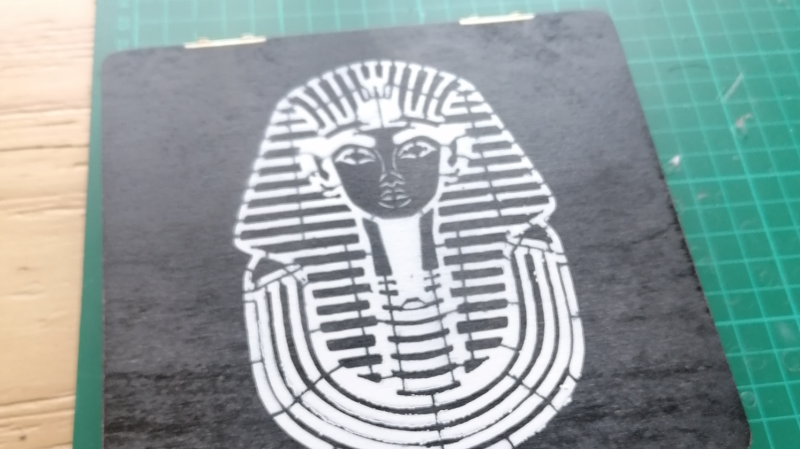[James Stanley] likes to spend time making puzzles and gadgets for escape rooms, and decided for a change to try their hand at a bit of magic. The idea was to construct a ‘magic box’, in which a coin can be placed in one of a number of slots, and then be able to remotely be able to determine the slot by means unseen. Obviously, this is an electronics hack, with a neat package of sensor and radio comms hidden inside a stack of CNC-milled wood. Coin locations are transmitted via Bluetooth to a Bangle.js smartwatch, which vibrates according to the slot occupied, allowing [James] to predict where the coin was placed.
 The sensor uses capacitive sensing, with a plate below each coin slot acting as one electrode of a capacitor and a copper-clad board hidden in the upper plate acting as the second. The presence of a coin is detected as a change in the capacitance of one of the sensors due to the fact that the plate separation will now be less for that one position. A simple PCB was CNC routed from a piece of plain clad board, with a cut out to solder down a Seeed Studio XIAO-ESP32-C3 module which runs the show and provides Bluetooth connectivity via an external PCB antenna module. Handily this module also handles the lithium battery management.
The sensor uses capacitive sensing, with a plate below each coin slot acting as one electrode of a capacitor and a copper-clad board hidden in the upper plate acting as the second. The presence of a coin is detected as a change in the capacitance of one of the sensors due to the fact that the plate separation will now be less for that one position. A simple PCB was CNC routed from a piece of plain clad board, with a cut out to solder down a Seeed Studio XIAO-ESP32-C3 module which runs the show and provides Bluetooth connectivity via an external PCB antenna module. Handily this module also handles the lithium battery management.
The software stack seems to be Arduino, with a very simple capacitance testing routine based on measuring charge times. Overall this is very nicely executed, even if [James] reckons there’s a bit more to being a show magician than just being able to construct the hardware. Magical hacks are a bit of a rarity around these parts, but we found a couple, like this magic opening box, and whilst not a magic trick, being able to hide from surveillance cameras could be actually helpful.
















“a lay audience just needs to think “the box is rigged” to think they’ve figured out how it works”
I feel this is solved by showmanship and misdirection rather than technology. The “magician” needs to convince the audience they are not getting a signal from the box, but that there is some elaborate set of steps required to deduce the coins location. Maybe balancing or spinning the box, or maybe using some inert prop to “dowse” the coin’s location, combined the some rule like the “magician” isn’t allowed to touch or hold the box, etc, etc..
A secret buzzer in his pocket giving him information? What is this, chess?
Wrong pocket…
Just don’t forget to wipe after finishing the game.
That’s nature’s pocket.
Now add a nice thin coil for charging it on a Qi charging pad…
This is not magic! ‘Tis but a parlour trick! Egads!
Illusion Micheal!!!
Nice! I do think if someone wanted to make a completely passive version of the box itself, it might not be that complex to do so by using some combination of the design of The Thing/Great Seal Bug listening device. Each slot tuned to modulate the signal differently when a coin is placed in it, maybe in a DTMF grid if you wanted more than four or five slots on the box. That kind of custom radio hardware might not have been worth the hassle for a proof of concept, but would definitely make it cheaper to mass produce.